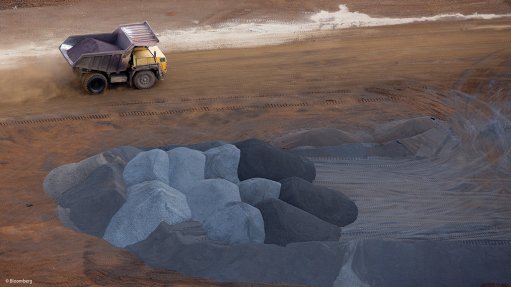
Australia has the chance to generate more than $170-billion in gross domestic product and create about 330 000 jobs by 2040, if it were to capitalise on its first-class endowment of critical minerals and other energy transition minerals.
However, time is of the essence, and the latest ‘Aussie Mine’ report from PwC issues a stark warning, indicating that the nation is lagging on critical policy implementation and necessary actions.
The report emphasises the urgent need for accelerated government initiatives, cautioning that delays could jeopardise Australia’s competitive edge against other nations already making strides in this crucial sector.
PwC highlights a mixed trajectory in Australia’s critical minerals landscape since its 2022 report, which laid out three key ambitions Australia must achieve to maximise its critical minerals opportunity. While there has been progress, it remains constrained. In contrast, certain international jurisdictions have surged ahead in the development of their critical minerals industries.
“The benefits reduce if we don’t move swiftly. Established supply chains very easily become barriers to entry,” PwC warns.
The report notes that the government’s critical minerals strategy and budgetary measures show that government intends for Australia to tap into foreign investment, rather than compete with it.
The establishment of the $15-million National Reconstruction Fund (NRF) in October last year, with a substantial $1-billion allocation for resource value-adding, marks a significant step. However, despite the NRF Bill’s passing in March, the actual formation of the National Reconstruction Fund Corporation occurred only in September.
PwC voices concern over the sluggish pace of action, highlighting that other nations are swiftly innovating and adapting their approaches to critical minerals.
While Australia grapples with procedural delays, new hard rock lithium deposits are emerging in Nevada and Quebec, accompanied by substantial governmental support for the industry. Innovations like direct lithium extraction technology are reshaping the landscape, holding the potential to nearly double production through enhanced recoveries from brine projects.
Beyond technology, governments worldwide are rapidly developing ecosystems conducive to strategic infrastructure, fostering related industries, attracting partnerships and encouraging innovation. PwC singles out Quebec as a notable example, successfully attracting the lithium-ion battery industry through proactive measures.
PwC points out that Australia’s mining companies are in the right shape financially to play their role in developing new projects. The ‘Aussie Mine’ report shows earnings have reached a new record level while existing financing and supportive markets will also help fund the needed investment.
The report provides analysis on Australia’s midtier 50 mining companies. The report notes that cash balances for the overall MT50 continued to grow. Cash balances for critical minerals miners increased 15% to $10.5-billion as strong results in the 2023 financial year, provided important growth funding. Cash held by coal companies, however, declined 14% as they settled 2022 tax liabilities, retired debt and paid dividends.